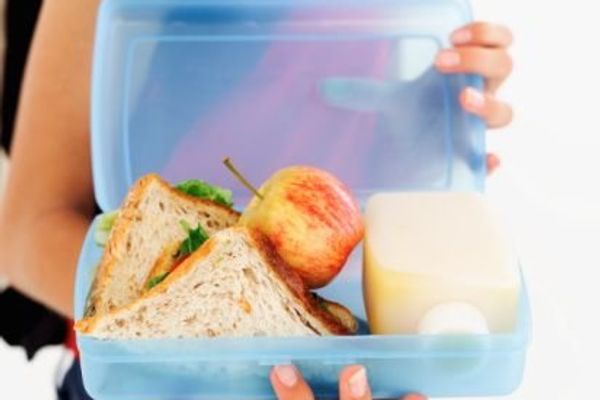When kids reach their teenage years, of course we want to encourage them to push out of their comfort zones by trying new activities, adventures, or sports. Going away to camp or to school in a different place can be exciting for teens, and these kinds of risks pay off. Teens make new friends, develop new talents, expand their interests and boost their self-confidence.
Some risk-taking behaviors, however, can be risky in the negative sense of the term. Drinking alcohol, smoking, using drugs, driving too fast or using a weapon, have all negative results. Unfortunately, these kinds of behaviors seem to be common among teens. According to the CDC's Youth Behavior Risk survey, about 29 percent of high school students report having ever tried smoking. (Good news is, this is down from 50 percent in 2007 and 70 percent in 1997). The same survey reported that about 15.5 percent of teenagers report having consumed alcohol before the age of 13. In addition, 16.2 percent reported carrying a weapon sometime in the 30 days leading up to the survey; 7.8 percent reported driving while under the influence of alcohol; and 20 percent reported riding with someone who was driving under the influence. These numbers say it all: teens are more likely than any other age group to take risks. As parents, the more informed we are about these risks, the better able we will be to address them with our teens and ultimately, to keep our teens safe.
Sidebar: How to Tell if Your Teen is Addicted to Smoking
If you suspect your teen may be addicted to smoking, give her this list of questions:
You have no intention of becoming a "smoker"; it's just for fun, right? Well, you'd be surprised at how an addiction to nicotine, the ingredient in cigarettes that gives a stimulating effect, can creep up on you. Ask yourself these questions:
- Do you smoke every day or almost every day?
- If you don't smoke for a day, do you feel a craving for a cigarette?
- Did you start out by smoking with your friends but now smoke alone?
- Are you gradually smoking more and more cigarettes?
- Are you spending more money than you'd like on cigarettes?
- Do you ever feel like you "need" a cigarette?
- Do you feel anxious if you run out of cigarettes?
- Have you tried to quit smoking and failed?
- Do you ever find yourself lighting up a cigarette almost unconsciously, without really thinking about it?
- Have you ever been surprised at how fast you went through a pack of cigarettes?
- Do you need to have a cigarette first thing in the morning?
If you answered yes to any of these questions, you are may already be addicted to nicotine. Talk to your parents and/or a health care professional about strategies for quitting. But whether you're addicted or not, you should try to quit. There are multiple health problems associated with regular tobacco use including stained yellow teeth and bad breath, breathing difficulties and the increased risk of developing lung cancer. There are dozens of online programs designed especially for teens who want to quit.
To find more information about smoking and how to stop smoking, contact:
Campaign for Tobacco-Free Kids
1400 I Street, Suite 1200
Washington, DC 20005
202-296-5469
202-296-5427
www.tobaccofreekids.org
As part of their tendencies toward risk taking behaviors, some teenagers try drugs or alcohol, and some end up abusing these substances.
One of the most frequently abused substances by teenagers is alcohol. Many people first try alcohol during their teenage years. The CDC reports that 60.4 percent of teenagers report having tried alcohol. Alcohol is associated with all the leading causes of death among teenagers, including traffic accidents, homicides and suicides, and may be a factor in unprotected sex resulting in unplanned pregnancies, STDs and AIDS. In addition, many young people die from alcohol poisoning. The CDC’s 2017 Youth Risk Behavior Survey found that among high school students, in the past 30 days:
- 30 percent drank some amount of alcohol
- 6 percent drove after drinking alcohol
- 17 percent rode with a driver who had been drinking
- 14 percent binge drank
Binge drinking (consumption of five or more drinks for a male or four or more drinks for a female on a single occasion within the past two weeks) is a particularly prevalent problem on our college campuses. According to the National Institute on Alcohol Abuse and Alcoholism, a national survey revealed that nearly 60 percent of college students aged 18-22 drank alcohol in the last month, and almost two out of three of them engaged in binge drinking in the same timeframe.
According to a national survey, almost 60 percent of college students ages 18–22 drank alcohol in the past month,1 and almost 2 out of 3 of them engaged in binge drinking during that same timeframe. Binge drinking has serious consequences. About 1,825 college students between the ages of 18 and 24 die from alcohol-related unintentional injuries, including motor-vehicle crashes.
Problem Drinking
Although it is illegal to drink under age 21, many teens do it anyway, and some do so in excess. The following are warning signs of a problem with alcohol:
- Getting drunk on a regular basis
- Getting drunk even when striving not to
- Lying about drinking
- Believing that alcohol is necessary to have fun
- Drinking because of problems or to relax
- Drinking because of anger
- Drinking alone
- Trying to stop drinking and failing
- Having frequent hangovers
- Feeling run-down, depressed or even suicidal
- Having "blackouts"—forgetting what you did while drinking
- Having problems at school or work or getting in trouble with the law
- Drinking in the morning
- Gulping drinks
- Thinking it's cool to be able to hold your liquor
- Drinking then driving
- Going to school intoxicated
Alcoholics Anonymous (AA) and other agencies offer support groups nationwide designed especially for teens with drinking problems. At AA, help from peers with similar problems is available on a confidential, free basis. If you suspect your teenager may have a problem with alcohol, look in the phone book under Alcoholics Anonymous for chapters in your area or visit the organization on the Web at www.aa.org. You can also talk to a health care professional confidentially about accessing professional mental health services to deal with your teen’s drinking problem.
Sidebar: Signs of Alcohol Poisoning
Below is a list of critical signs of alcohol poisoning. If you notice any of the following symptoms in a teen after he or she has consumed alcohol, get help immediately:
- Person seems to be acting strangely or seems unusually sleepy and you can't wake him or her up
- Vomiting while sleeping
- Seizures
- Slow breathing
- Irregular breathing
- Hypothermia (low body temperature), bluish skin color or paleness
What to do if you suspect that someone may have ingested a fatal dose of alcohol:
- Call 911 or the emergency number IMMEDIATELY.
- Tell emergency medical technicians the symptoms and, if you know, how much alcohol the victim drank. Prompt action may save the life of a friend or your own.
- Stay with the person.
- Keep the person from choking on vomit.
Other Drug Use
Alcohol is not the only substance abused by teens. According to the CDC, in 2017, 38 percent of all high school students reported having used marijuana, the most commonly used illicit drug, one or more times in their lifetimes. In addition, about 1 in 10 9th grade students reported having tried cigarettes, and amount 12th graders, nearly 20 percent reported using prescription medication without a prescription. In addition, 6.6 percent of high school students reported using hallucinogenic drugs and 6.2 percent reported using inhalants.
According to the National Institute on Drug Abuse, here are some signs your teen may be abusing drugs:
- Sudden change in behavior, such as acting withdrawn, frequently tired or depressed, or hostile
- Change in peer group
- Carelessness with personal grooming
- Decline in academic performance
- Loss of interest in favorite activities
- Missing classes or skipping school
- Changes in eating or sleeping habits
- Deteriorating relationships with family members and friends
Ask for Support
No matter how good your teen’s intentions may be, she may at some time find herself in a situation where she needs the support of her parents or a trusted adult. Therefore, it's important to open the doors of communication between you and your teen before she ever finds herself in a dangerous situation. Together with your teen, come up with a "no-questions-asked" or a "free-ride" policy, meaning, if she finds herself in a difficult situation, she can call you to get a free ride with no questions asked until the next day. That way, you can trust your teen to to use her best judgment in strange and difficult situations, and she can be comfortable knowing that if she makes a mistake, she won't be ridiculed by her parents for it.
The process of putting down thoughts on paper can clarify expectations on both sides. An organization called Students Against Destructive Decisions (SADD; Web site is www.sadd.org) promotes its Contract For Life for just this purpose. You can use this as the basis of your own agreement. (See under Resources, "Contract For Life—A Foundation for Trust and Caring," a contract for teens and their parents to sign.)
Sidebar: Resources:
Students Against Destructive Decisions (SADD)
508-481-3568
www.sadd.org
Drug Free America Foundation, Inc.
727-828-0211
www.dfaf.org
National Institute on Drug Abuse
301-443-1124
www.nida.nih.gov
Campaign for Tobacco-Free Kids
202-296-5469
www.tobaccofreekids.org
The Partnership for a Drug-Free America
212-922-1560
www.drugfree.org
Substance Abuse and Mental Health Services Administration
1-877-SAMHSA-7 (1-877-726-4727)
https://www.samhsa.gov/
Sidebar: Students Against Destructive Decisions (SADD) Contract for Life: A Foundation for Trust and Caring
This contract is designed to facilitate communication between young people and their parents about potentially destructive decisions related to alcohol, drugs, peer pressure and behavior. The issues facing young people today are often too difficult to address alone. SADD believes effective parent-child communication is critically important in helping young adults make healthy decisions.
Young Person: I recognize there are many potentially destructive decisions I face every day and commit to you that I will do everything in my power to avoid making decisions that will jeopardize my health, my safety and overall well being, or your trust in me. I understand the dangers associated with the use of alcohol and drugs and the destructive behaviors often associated with impairment. By signing below, I pledge my best effort to remain alcohol- and drug-free, I agree I will never drive under the influence, or accept a ride from someone who is impaired, and I will always wear a seatbelt. Finally, I agree to call you if I am ever in a situation that threatens my safety and to communicate with you regularly about issues of importance to us both.
____________________________________________ Young Person
Parent (or Caring Adult): I am committed to you, and to your health and safety. By signing below, I pledge to do everything in my power to understand and communicate with you about the many difficult and potentially destructive decisions you face. Further, I agree to provide for you safe, sober transportation home if you are ever in a situation that threatens your safety and to defer discussion about that situation until a time when we can both discuss the issues in a calm and caring manner. I also pledge to you that I will not drive under the influence of alcohol or drugs, I will always seek safe, sober transportation home, and I will always remember to wear a seat belt.
____________________________________________ Parent/Caring Adult







